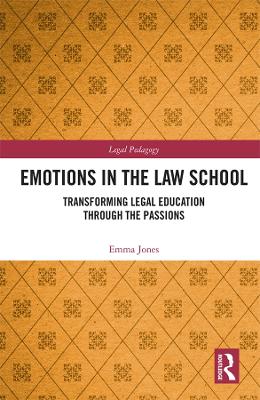Legal Pedagogy
1 total work
Law schools are failing both their staff and students by requiring them to prize reason and rationality and to suppress or ignore emotions. Despite innovations in terms of both content and teaching techniques, there is little evidence that emotions are effectively acknowledged or utilised within legal education. Instead law schools are clinging to an out-dated and erroneous perception of emotions as at best, irrational, and at worst dangerous. In contrast to this, educational and scientific developments have demonstrated that emotions are a fundamental, inescapable part of learning, teaching and skills development. Harnessing these emotions will therefore have a transformative effect on legal education and enable it to adapt to the needs and demands of the twenty-first century.
This book provides a theoretical overview of the role played by emotions in all aspects of the life of the law school. It explores the relationship emotions have with key traditional and contemporary approaches to legal education, the ways in which emotions can be conceptualised, their interaction with the politics and policies of legal education and their role within teaching and learning. The book also considers the importance of emotional wellbeing for both law students and legal academics
Overall, this book argues for a more holistic form of legal education in which emotions play a valuable (and valued) role. This requires a new vision for law schools, in which emotions are acknowledged and embedded at all levels, institutional and personal.
